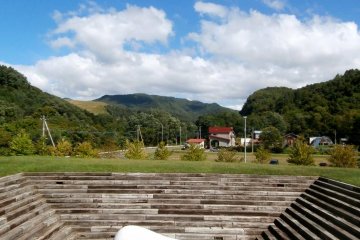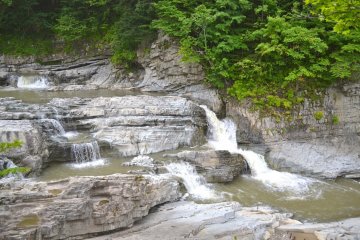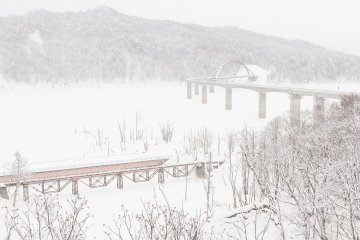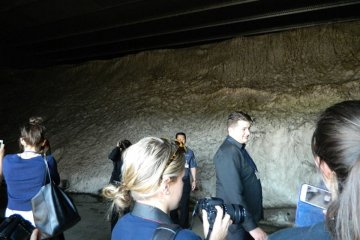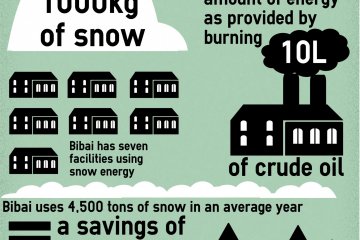Hokkaido’s “snow warehouses” are a pretty incredible source of clean power. In summer 2014, I made a visit to one such facility in the town of Bibai, just north of Sapporo.
It was about 30 degrees Celsius outside, but once we'd stepped through the huge insulated doors, the temperature plummeted. The snow stored in these warehouses keeps them refrigerated at 0-4 degrees, providing the perfect environment for keeping produce such as berries, asparagus, and rice cool and fresh.
The snow and ice is "harvested" in the winter, which forms part of the road-clearing process. This is then transported to the warehouses, where it is stored and used for a variety of purposes, including food storage and air-conditioning
The annual snow accumulation for Bibai is more than 8 meters, one of the highest average snowfalls for Hokkaido. Previously a mining town, the area has adapted to these freezing winters through developing the innovative snow-cooling technology.
To put into perspective just how environmentally-friendly this technology is:

Established in 1997, the Bibai Natural Energy Research Association has been the organization responsible for working out how to turn a winter wonderland into a source of clean power. They have worked tirelessly ever since, with impressive results visible around the region today.
“Year after year, after every snowfall in Bibai the extra snow had to be collected and placed in designated areas until the spring, when more work was done to melt it. The question was, couldn't the snow be changed into a resource?” -Nipponica No. 28 (March 2015)
According to the government's Cool Energy paper disusing the environmental benefits of using snow, "snow−and−ice cryogenic energy can easily provide inexpensive and stable circulation of low−temperature air with high humidity, and is highly valued as an alternative source of energy to oil and clean energy against global warming as it emits no carbon dioxide."
The benefits don't stop there: "It also has many advantages such as preserving freshness, enhancing sugar content, dehumidifying and deodorizing of farm products", claims the paper.
We'd love to see other cold-climate areas harvesting their snow. Canada, Russia and other winter wonderlands, we're looking at you!



